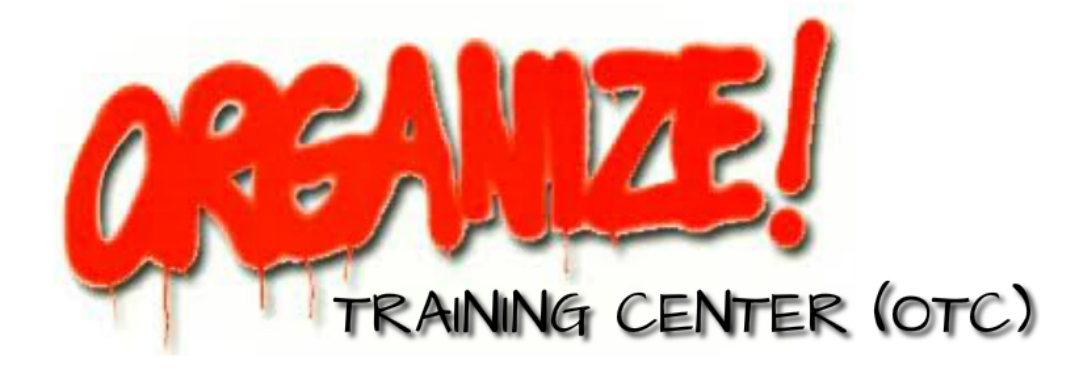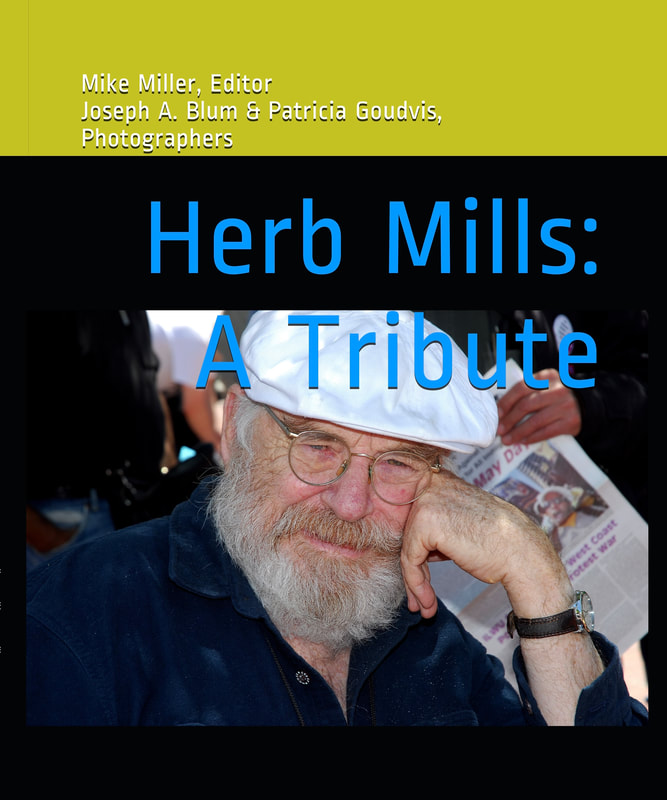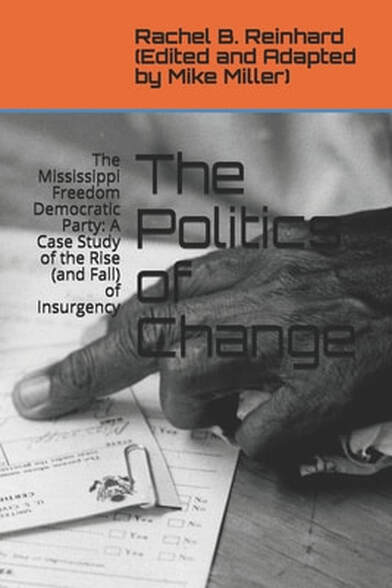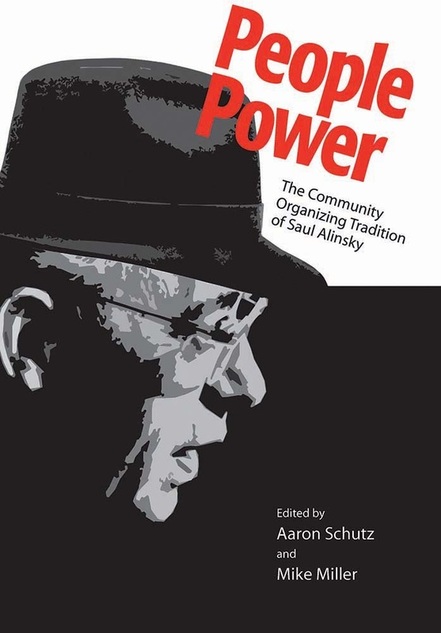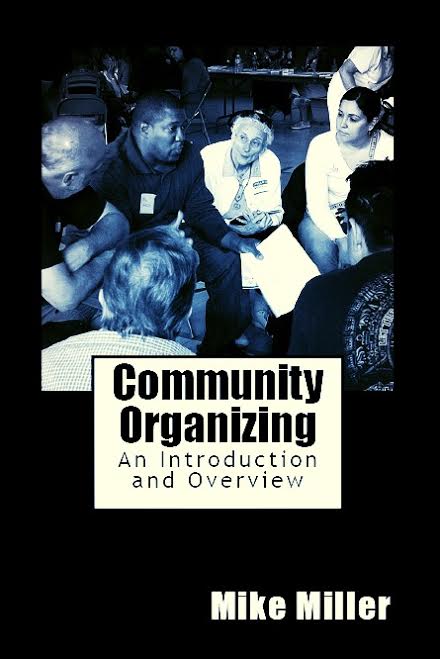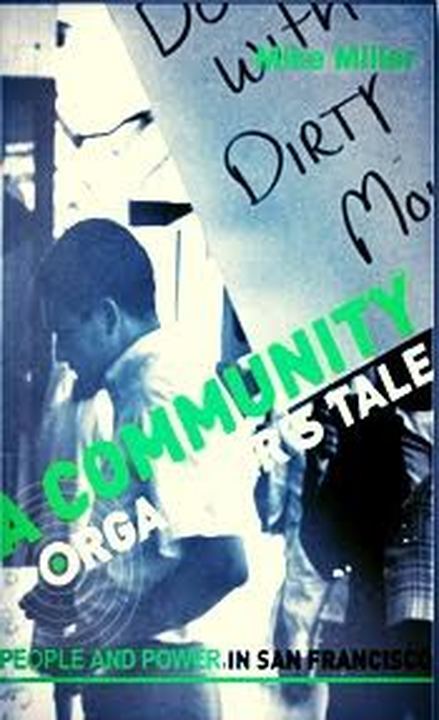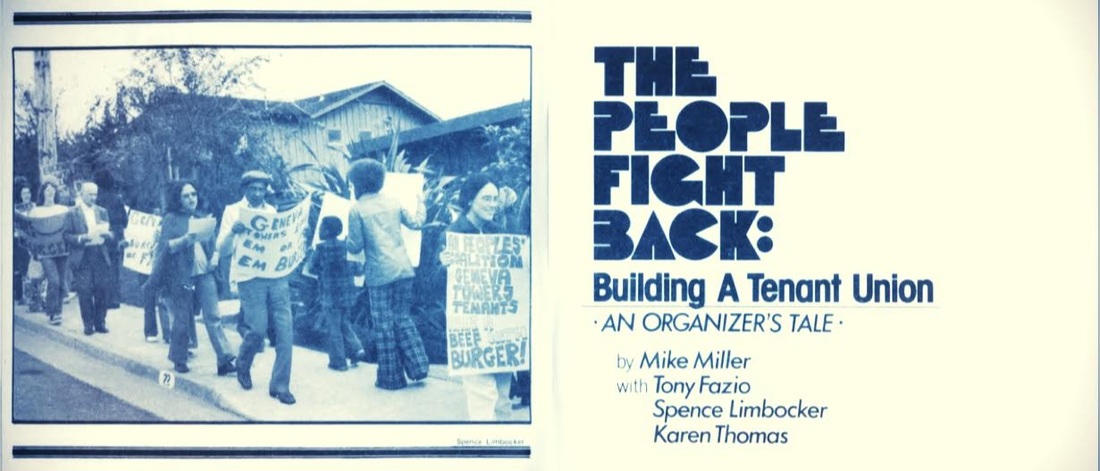|
Herb Mills: A Tribute, edited by Mike Miller ($30)
Herb Mills was a brilliant political theorist (PhD University of California), key strategist in the early UC Berkeley student movement, San Francisco Bay Area longshoreman, and important leader in the International Longshore & Warehouse Union (ILWU), where he played a key role within the union, in major conflicts with employers, and in the ILWU's international support for democracy in Chile, El Salvador, Philippines and South Korea. His articles on longshore work, the union, the industry, and the student union appeared widely.
This book is a tribute to Herb, who died in 2018. It collects articles by him, and about him, including differing views on his contributions to both his union and political sociology. To purchase: Send a check for $30.00 to Organize Training Center; 442 Vicksburg St; San Francisco, CA 94114, or use the PayPal button below.
|
The Politics of Change — The Mississippi Freedom Democratic Party:
A Case Study of the Rise and Fall of Insurgency
by Rachel B. Reinhard
Adapted and abbreviated by Mike Miller ($23)
A Case Study of the Rise and Fall of Insurgency
by Rachel B. Reinhard
Adapted and abbreviated by Mike Miller ($23)
"The readers of this book will have a much better understanding
of the Mississippi freedom struggle and the people who made it happen.
We cannot say thank you enough to the Black political voices in Mississippi
who not only helped to change that state, but helped to change America."
(Leslie-Burl McLemore, Ph.D., is Professor Emeritus of Political Science
at Jackson State University, and a 1964 Mississippi Freedom Democratic Party delegate.)
"The work of the Mississippi Freedom Democratic Party (MFDP)
is one of the high water marks for a certain theory of organizing and social change.
It proves that the idea of permanent organizations that represent
the interests of the dispossessed can be more than a chimera.
It offers us a way to rescue the idea of activism
from being reduced to speeches and demonstrations.
It gives us some of our most inspiring examples of grassroots leaders
and some profound lessons about the limits of mid-twentieth-century liberalism.
'Most importantly, it ushers a wide spectrum of black Mississippians
into the political process after three generations of disenfranchisement.'
In the process, field hands and truck drivers, dairy farmers and domestics
achieved,in very short order, a measure of political sophistication.
At the same time, FDP’s struggle led to enduring changes in the national Democratic Party."
(Charles M. Payne is the Henry Rutgers Distinguished Professor of African American Studies at Rutgers
University- Newark where he also directs the Joseph Cornwall Center for Metropolitan Research, and author of
I've Got the Light of Freedom: The Organizing Tradition in the Mississippi Civil Rights Movement (1995))
"Rachel Reinhard’s book is as current as tomorrow’s news.
I fervently hope the new generation of activists, leaders and organizers
who are working on everything from global climate change,
species extinction and the threat posed by imperial foreign policy
to the most local issue you can imagine
will heed what I think are its central lessons."
(Mike Miller directs the ORGANIZE Training Center. Since his days as a SNCC field secretary (1963-end of 1966)
to the present he has been a community organizer, teacher, writer, workshop leader, mentor, consultant
and lecturer working with community and labor organizations. Write him at [email protected])
|
This book began as Rachel Reinhard’s PhD dissertation. When Mike Miller read it, he said to Rachel, “This is a story that has to be told to a wider audience.” That led to the two of them collaborating on this project. The story of the 1964-1968 struggle waged by the Mississippi Freedom Democratic Party is as current as tomorrow’s news!
"Established power at the state and local level created…interracial front organizations that claimed to represent Mississippi’s Black and poor…systematically excluded FDP members and other activists from decent jobs, including jobs created because of the movement…launched campaigns in the national press to paint FDP as radical extremists…constructed a web of patronage opportunities for those willing to play along…mobilized the machinery of Senatorial investigation… Reinhard [captures] all this in much more detail than I have seen elsewhere. At the same time, she shows the FDP’s struggles with internal disorganization, a topic many scholars tip-toe around." (Charles M. Payne, Henry Rutgers Distinguished Professor of African American Studies, Rutgers University-Newark; Director, Joseph Cornwall Center for Metropolitan Research) |
To purchase: Send a check for $23.00 to Organize Training Center;
442 Vicksburg St; San Francisco, CA 94114, or use the PayPal button below.
442 Vicksburg St; San Francisco, CA 94114, or use the PayPal button below.
(Readers interested in sources and greater detail should read Rachel Reinhard's Dissertation: download.)
People Power: The Community Organizing Tradition of Saul Alinsky, by Aaron Schutz & Mike Miller ($30)
|
Saul Alinsky, according to Time Magazine in 1970, was a “prophet of power to the people,” someone who “has possibly antagonized more people...than any other living American.” People Power introduces the major organizers who adopted and modified Alinsky’s vision across the United States:
People Power Reviews |
To purchase: Send a check for $30.00 to Organize Training Center;
442 Vicksburg St; San Francisco, CA 94114, or use the PayPal button below.
442 Vicksburg St; San Francisco, CA 94114, or use the PayPal button below.
Community Organizing: An Introduction and Overview, by Mike Miller ($20)
|
This book provides a brief introduction to what is variously called "faith-based," "congregation-based," and "institution-based" community organizing. Grounded in a composite case study of an actual organizing effort, it shows how local communities can be organized for power. Key organizing concepts and strategies are illustrated with stories of real encounters with leaders, communities, and powerful opposition figures. In the approach described here, civic and religious institutions come together to give the community a collective voice. Organizers help a community build a powerful organization rooted in core values of democracy and the social justice teachings of the world's great religious traditions.
Saul Alinsky developed the foundations of the tradition of organizing described here, an approach that remains dominant in the U.S. today. Alinsky rooted power deeply in the lives, relationships, and institutions of marginalized and oppressed people. In his early organizing days, his organizations brought together a wide range of institutions: religious congregations and labor unions, as well as mutual aid, self-help, athletic, sororal and fraternal, neighborhood and other voluntary associations. By the late 1970s, as non-congregational neighborhood associations fell into decline, organizers in the Alinsky tradition started looking more carefully at how to sustain the vibrancy of the religious institutions that remained. Organizers sought to help congregation members become co-creators, rather than consumers, of the life of their churches, and worked to help members connect their faith more directly to action in the world. In this way, they helped make both faith and action more meaningful. |
To purchase: Send a check for $20.00 to Organize Training Center;
442 Vicksburg St; San Francisco, CA 94114, or use the PayPal button below.
442 Vicksburg St; San Francisco, CA 94114, or use the PayPal button below.
A Community Organizer's Tale, by Mike Miller ($25)
|
The rise and fall of the multi-issue Mission Coalition Organization is recounted in A Community Organizer’s Tale, a richly detailed story of people power set in San Francisco’s predominantly Latino Mission District. Employing strategies inspired by community organizer Saul Alinsky and the Deep South civil rights movement, the organization defeated Urban Renewal, negotiated jobs for the unemployed, and protected low-income tenants from exorbitant rents, until it was ultimately weakened by federal “Model Cities” funding.
Embodying the concept, recently returned to the public eye by its proponent Barack Obama, that “change comes from below” and combining colorful stories, lessons on organizing for social and economic justice, public policy analysis, a keen eye for American politics, and reflection on democratic theory, this is a thoughtful and hopeful antidote to cynicism, apathy, and powerlessness. A Community Organizer's Tale Reviews To purchase: Send a check for $25.00 to Organize Training Center; 442 Vicksburg St; San Francisco, CA 94114, or use the PayPal button below.
|
The People Fight Back: Building a Tenant Union, by Mike Miller
with Tony Fazio, Spence Limbocker & Karen Thomas ($7)
with Tony Fazio, Spence Limbocker & Karen Thomas ($7)
This in-depth look at the organization of a five-hundred unit, HUD-subsidized, low-to-moderate income, housing complex in San Francisco by the team of organizers who put together the Geneva Towers Tenants' Association (GTTA) provides both a blow-by-blow account of the organizing process, and an analytic commentary of the lessons to be learned from it. The authors offer time-less lessons for organizers and a clear understanding of what organizing is all about for students and the interested public.
The GTTA story illustrates the dynamics of direct action tactics as well as of the negotiating process. It includes human interest stories and plenty of action.
The GTTA story illustrates the dynamics of direct action tactics as well as of the negotiating process. It includes human interest stories and plenty of action.
To purchase: Send a check for $7.00 to Organize Training Center;
442 Vicksburg St; San Francisco, CA 94114, or use the PayPal button below.
442 Vicksburg St; San Francisco, CA 94114, or use the PayPal button below.
The source of the quote at the top of the page is the Rev. Robert M. Davidson,
former Moderator, United Presbyterian Church (USA).
former Moderator, United Presbyterian Church (USA).
(415) 648.6894 [email protected] 442 Vicksburg, San Francisco, CA 94114
Copyright© Since 2016, ORGANIZE! Training Center. All rights reserved.
Copyright© Since 2016, ORGANIZE! Training Center. All rights reserved.
